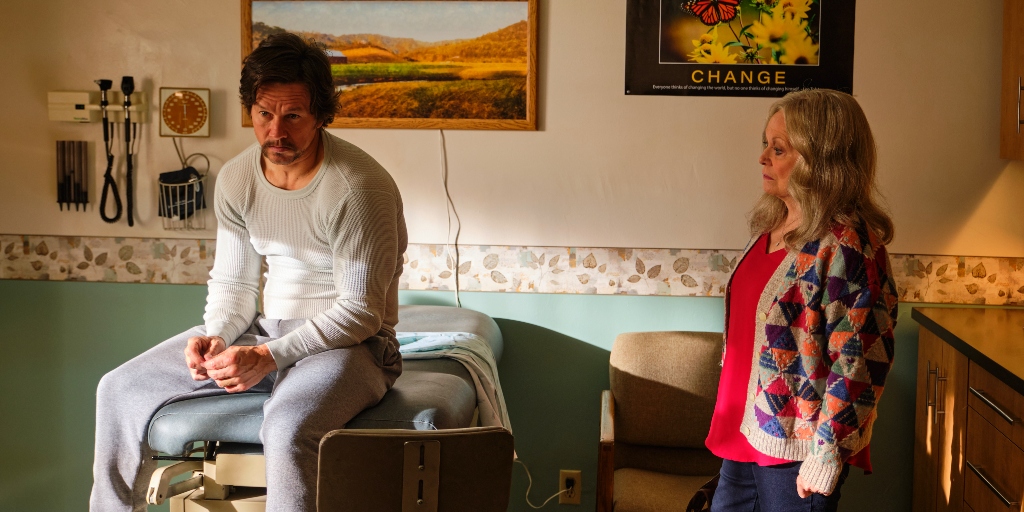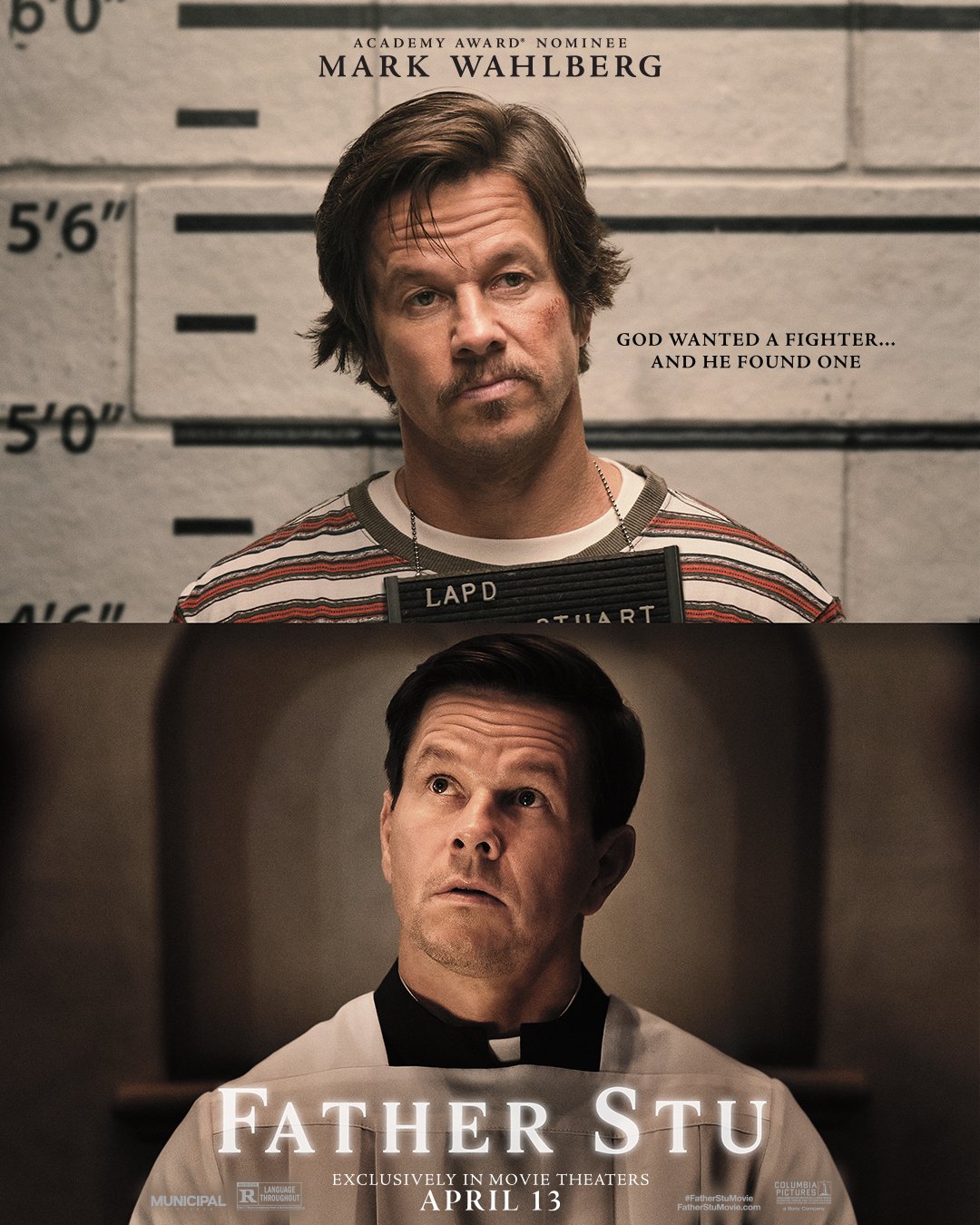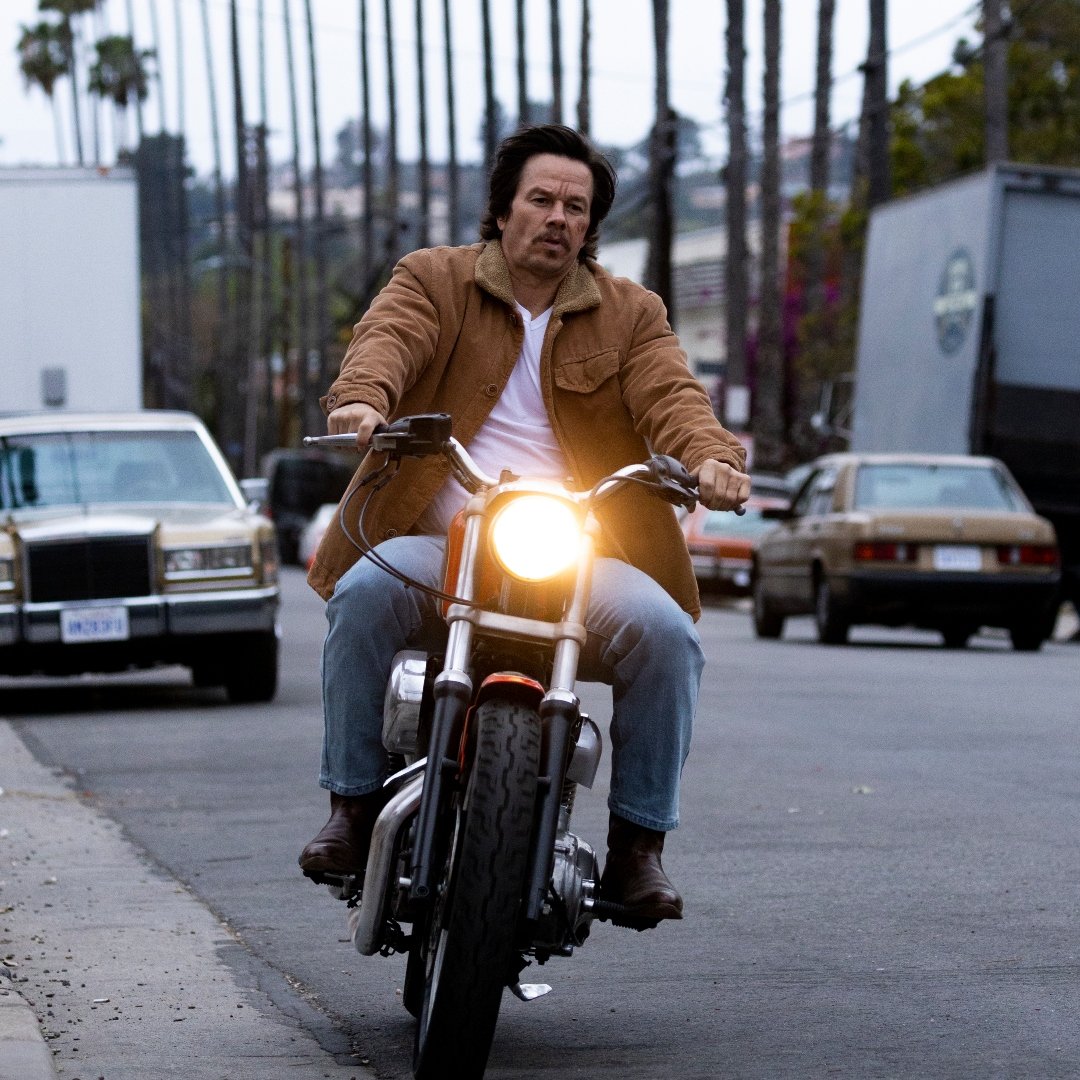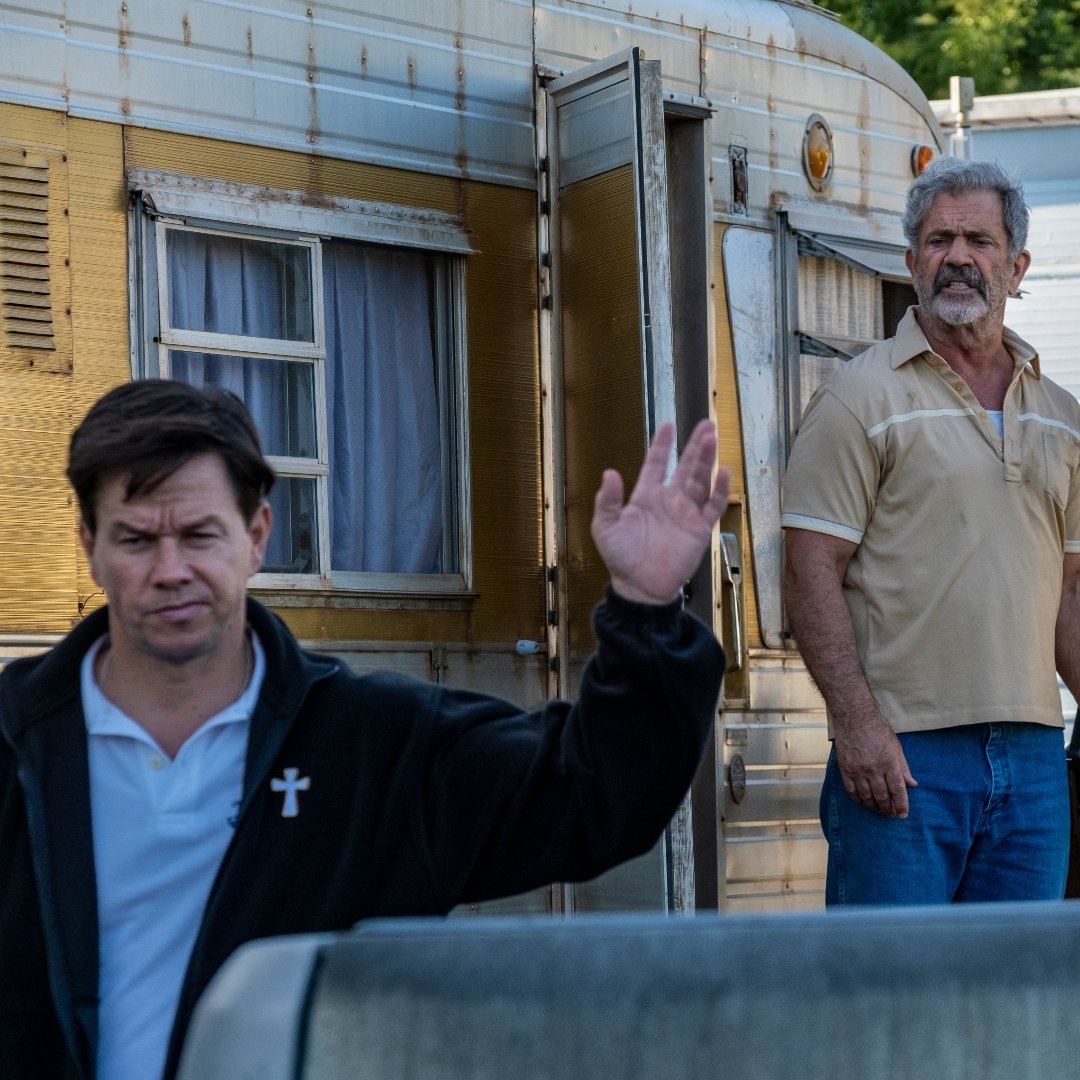
Sister Nancy Usselmann reviews Mark Wahlberg's new film, based on the true story of a boxer-turned-priest whose conversion story became a vocation story.
Many people have passion projects that they work on for years before they become a reality. Mark Wahlberg has been working on telling the incredible story of a boxer-become-priest for years and he considers it a tremendous blessing that it has now made it into the public view in his film Father Stu. The project came about after his parish priest told him of the story. The blessing, he says, is “to see people’s response and how many people it’s touched in a very personal way…and from all walks of life.”
As a practicing Catholic, Mark feels this story is the culmination of his work as an actor. He says, “This is one of the first opportunities for me to utilize all the blessings bestowed upon me to do God’s greater good.” He believes that Father Stu is pulling a lot of strings to make this happen, including Mark’s own prayers “to the Good Lord and Mother Mary” for this project to become a reality.

In a world where suffering is avoided at all costs or covered over with medications, consumerism, and addictions, this timely cinematic feature offers another view to the purpose of suffering in our lives. It speaks about transforming it for a higher good—one that produces joy and serenity in the face of change.
Produced by Mark Wahlberg, Steven Levinson, and Jordon Foss, and written and directed by Rosalind Ross, the film is based on the true story of Father Stuart Long (Mark Wahlberg), a priest from the Diocese of Helena, Montana whose colorful past and dramatic conversion offers much material for visual storytelling. The film opens with him winning an amateur boxing match out of many that leave him badly bruised and seeking a doctor’s opinion on lingering pains in his jaw. The doctor tells him he needs to give up fighting otherwise the infections in his muscles will only get worse, a premonition of what is to come. After the initial shock, Stu seems undeterred with a certain quixotic attitude ready for the next adventure. Stu’s mother (Jaci Weaver) seems relieved until he decides to move to Hollywood to pursue acting.

Stu is rough around the edges and street smart, relentlessly pursuing a young woman named Carmen (Teresa Ruiz) he meets at the butcher shop where he’s picked up a job in between auditions. He pursues her hoping to just have some fun, but little did he know where it would lead. With humor and heart, Ross says about Stu, “He doesn’t see the limitations other people do…. There’s a guilelessness about him” that’s endearing. She says, “His troublemaking, his womanizing, his drinking, and his anger ironically make him the perfect candidate for change.” And change miraculously happens through the waters of Baptism and the sea of suffering.
Our suffering not only changes us but also effects those around us. Stu had a complicated relationship with his alcoholic father, Bill, played brilliantly by Mel Gibson. Yet they come together through the suffering each endured. Family comes through sometimes in the moments when we need them the most. Stu’s own spiritual journey through suffering leads his father to ponder his own journey of life.

Wahlberg says the film speaks to the value of suffering in our lives, after all, “it’s inevitable.” He continues, “I’ve dealt with so much loss over the last two years and this has given me comfort and hope to be able to handle all of that and more.” Stu hits so many brick walls along his journey of life, but none so much as after his conversion to Catholicism. Stu has never been one to give half measure to anything and once he finds faith, even his pursuit of love takes on another meaning. His acceptance of suffering is a response to God’s all-encompassing love. Suffering is, “just a reminder that things happen for a reason and if we trust in God and his plan everything is going to be alright,” says Wahlberg.
When the love of his life seemed at first to be the Catholic, church-going girl Carmen, a motorcycle accident brings Stu on the brink of death. Miraculously surviving significant injuries, Stu ponders why God spared him, and he emerges with new purpose and determination. Yet, suffering pursues him, and his once haughty toughness is tempered by the strength of humility and acceptance of suffering. Ross reflects on Stu’s dramatic interior change after the accident, “Staying in the fight on your feet isn’t always as effective as getting on your knees and admitting you can’t win alone.” He feels his call to be a priest.
His conversion story becomes a vocation story. It’s a dramatic shift for someone whose rough character seems to be the opposite of a priestly persona. But priests are real men who experience the call of God from wherever they are in life, not to change who they are but to change their goal in life to be of service by uniting themselves to Christ. There are no molds to religious life. Stu brought himself to the priesthood while leaving behind his past. As Wahlberg says, “All the other distractions had gone away and his dedication to serving God was his sole purpose.” Suffering pursued him in the seminary when he was diagnosed with a rare autoimmune disease that mimics ALS. “He embraced his sickness as a blessing,” says Wahlberg, “that brought him closer to Christ.”
Father Stu is a film that presents the drama of change and the power of suffering to transform a broken human being into a glorious example of strength, humility, and love of all humanity. In the film, Father Stu reminds us, “We shouldn’t pray to have an easy life but for the strength to endure a difficult one.” Suffering, he says, “is the fullest expression of God’s love. It’s the chance to be close to Christ.”
Father Stu was highly sought after for confession and spiritual direction especially after he was admitted into the Big Sky Care Center because of his advanced disease. Instead of avoiding suffering or covering it over with earthly pleasures, Father Stu becomes an example of one who transcends suffering to give of himself in love to others. This raw and truthful story shows Stu, “as hardened as he was, as angry as he was, when he found God and God chose him, he changed, and he committed, and he was never going to waver,” says Wahlberg.
Stu challenges each of us to see the gift that suffering can be in our lives. Just when we feel life is too much or we can’t go any further, Father Stu is that shining example to keep on going, to keep on giving. Wahlberg hopes that when people walk out of the theater, they, “do a little bit more to be a little bit better…. And get out there and start doing some good!”
Father Stu (rated R for language throughout) releases in theaters April 13, 2022.
Copyright 2022 Sister Nancy Usselmann, FSP
Images: by Karen Ballard © 2022 Sony Pictures Entertainment Inc. All rights reserved.
First published on bemediamindful.org.
About the Author

Sister Nancy Usselmann, fsp
Sr. Nancy Usselmann, FSP is a Daughter of St Paul and the Director of the Pauline Center for Media Studies in Los Angeles, CA. She is a Media Literacy Education Specialist, theologian, international speaker, film reviewer, and blogger for BeMediaMindful.org. Her book A Sacred Look: Becoming Cultural Mystics is a theology of popular culture published by Wipf & Stock Publishing.


.png?width=1806&height=731&name=CatholicMom_hcfm_logo1_pos_871c_2728c%20(002).png)
Comments